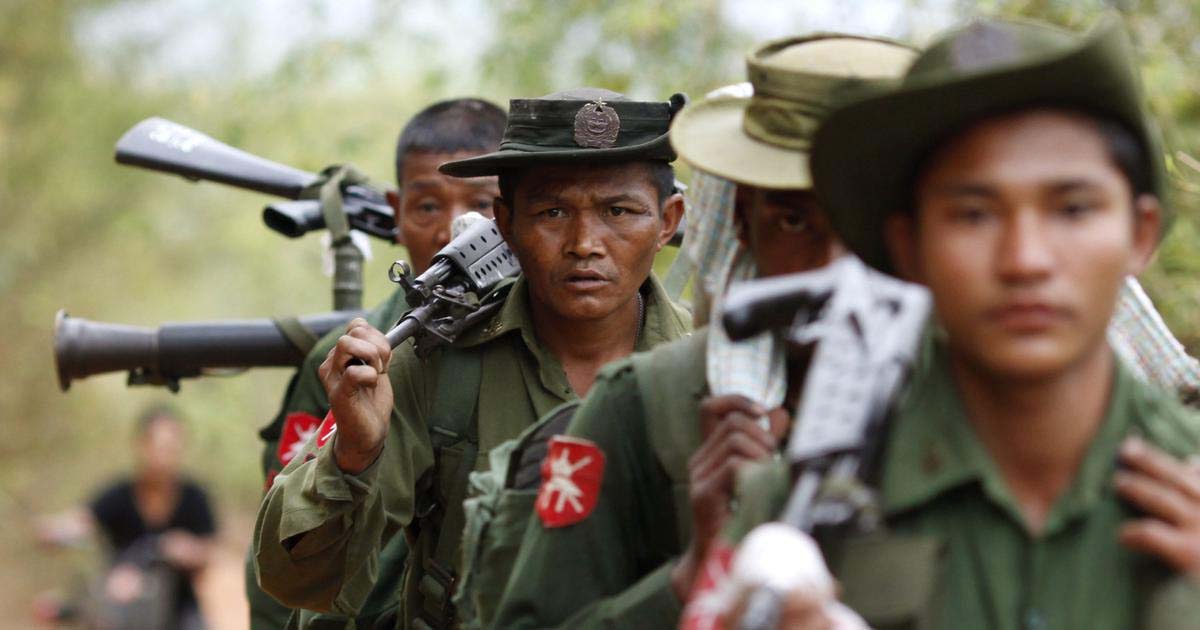Exclusive: Rajiv Bhatia Analyzes Fallout from FMR’s Policy Shift
<p>Delving into the repercussions of India’s Act East policy, Bhatia highlighted its broader implications, urging a temporary shift in focus from Myanmar to other nations. A momentous decision unfolded as India opted to cease the Free Movement Regime (FMR) with Myanmar and initiate the comprehensive fortification of the shared border. This move transpired against the […]</p>

Exclusive: Rajiv Bhatia Analyzes Fallout from FMR’s Policy Shift
Delving into the repercussions of India’s Act East policy, Bhatia highlighted its broader implications, urging a temporary shift in focus from Myanmar to other nations.
A momentous decision unfolded as India opted to cease the Free Movement Regime (FMR) with Myanmar and initiate the comprehensive fortification of the shared border. This move transpired against the backdrop of heightened anxieties surrounding national security and illicit immigration, particularly post the 2021 Myanmar coup d’état. The official response from the Myanmar government is still pending.
Established in 1969, the FMR permitted residents residing within a 16 km radius of the shared border to traverse freely with a permit, fostering trade, family connections, and cultural interchange.
Bhatia articulated India’s desire for Myanmar’s collaboration to ensure stability in the Northeast’s security landscape, citing the existence of anti-India insurgent factions fueled by Myanmar’s internal instability. Emphasizing the need for change on Myanmar’s part in addressing this, he commented, “The Myanmar government is hardly doing anything to curb it, and we want that to be changed.”
Elucidating the significance of Myanmar for India, Bhatia asserted, “Myanmar stands as the forefront of ASEAN, playing a pivotal role as a gateway for developing economic ties with ASEAN.”
Expressing concerns about China’s expanding influence in Myanmar, Bhatia underscored its unfavorable impact on India’s national security interests. He advocated for sustained engagement not only with the government but also with various stakeholders in Myanmar, ensuring India’s constant presence in the country’s economic dynamics.
In light of escalating tensions between the military Junta and anti-Junta groups in Myanmar, Bhatia recommended a nuanced approach. He proposed maintaining ties with the military regime while concurrently broadening contacts with other influential players.
The ex-diplomat emphasized the need for collaborative efforts with like-minded nations, including those in ASEAN, the Quad, and even China, to devise a comprehensive strategy for addressing the prevailing situation in Myanmar.
Highlighting the overarching priority of India’s policy toward Myanmar, Bhatia affirmed, “India needs to work with like-minded countries to come up with a blueprint that we can present to our friend Myanmar to deal with the situation.”
Underscoring India’s commitment to fostering good relations with neighboring countries, Bhatia acknowledged the non-negotiable nature of security and sovereignty. He addressed the concerns raised by the scrapping of the FMR, acknowledging diverse reactions and emphasizing the need for a delicate balance.
External Affairs Ministry spokesperson Randhir Jaiswal, in a routine media briefing, underscored the worrisome and critical security situation in Myanmar’s Rakhine state. He disclosed that an advisory had been issued, urging Indian citizens to evacuate the region due to the escalating security concerns.
Jaiswal admitted the lack of precise figures regarding the number of Indian nationals in Rakhine state but acknowledged the potential impact on the Indian consulate in Sittwe. He affirmed ongoing assessment and strategic considerations to effectively navigate the evolving situation.








